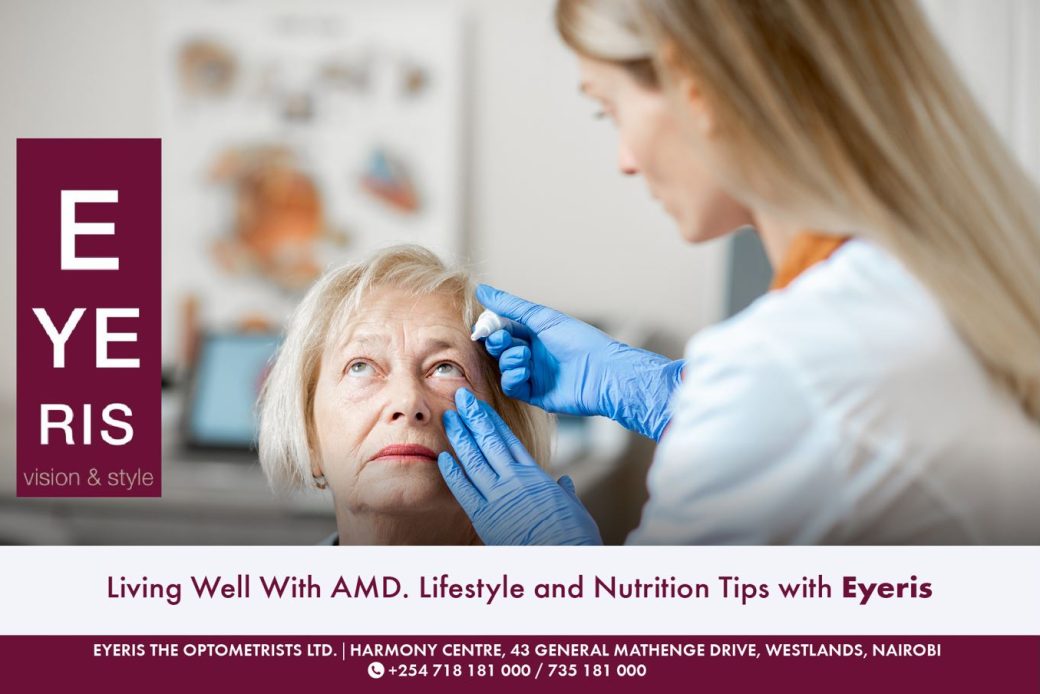What is AMD?
Age-related macular degeneration (AMD) is an eye disease that can blur your central vision. It happens when aging causes damage to the macula — the part of the retina that controls sharp, straight-ahead vision. AMD is a common condition — it’s a leading cause of vision loss for older adults. AMD doesn’t cause complete blindness, but losing your central vision can make it harder to see faces, read, drive, or do close-up work like cooking or fixing things around the house. AMD happens very slowly in some people and faster in others. If you have early AMD, you may not notice vision loss for a long time, which is why it is important to get regular eye exams.
What are the types and stages of AMD?
There are 2 types of AMD: dry and wet. Most people with AMD have dry AMD (also called atrophic AMD). This is when the macula gets thinner with age. It usually progresses slowly over several years. There’s no treatment for dry AMD, but you can find ways to make the most of your remaining vision. Wet AMD (also called advanced neovascular AMD), is a less common type of late AMD that usually causes faster vision loss. Any stage of dry AMD can turn into wet AMD — but wet AMD is always late stage. It happens when abnormal blood vessels grow in the back of the eye and damage the macula. The good news is that treatment options are available for wet AMD.
What are the symptoms of AMD?
AMD is a progressive disease — that means symptoms usually get worse over time.- Early dry AMD doesn’t cause any symptoms.
- As the disease progresses, people may notice mild blurriness in their central vision or trouble seeing in low lighting. Over time this blurry area may get bigger or you may see blank spots. Colours may also seem less bright than before.
- In late AMD (wet or dry type), many people notice that straight lines start to look wavy or crooked. If you notice this symptom, see your eye doctor right away.
Your risk for AMD increases as you get older. People age 55 and older are more likely to have AMD. The risk for AMD is also higher for people who:
- Have a family history of AMD
- Are Caucasian
- Smoke
If you’re at risk for AMD it’s important to get regular eye exams. Ask your doctor how often you need to get eye exams.
How can I lower my risk for AMD?
Research shows that you may be able to lower your risk of AMD (or slow vision loss from
AMD) by making these healthy choices:
- Quit smoking — or don’t start
- Get regular physical activity
- Maintain healthy blood pressure and cholesterol levels
- Eat healthy foods, including leafy green vegetables and fish
- Protect your eyes from UV light by wearing 100% UV-protective sunglasses and a hat when outdoors
- A blue filter is recommended on your spectacle lenses that filter out the harmful blue light as this increases the risk of AMD in individuals who have low macular pigments
What’s the treatment for AMD?
There’s currently no treatment for early AMD, so your eye care practitioner will probably just keep track of how your eyes are doing with regular eye exams. Eating healthy, getting regular exercise, and quitting smoking can also help.
Special dietary supplements (vitamins and minerals) may slow down the progression of AMD.
If you have wet AMD, there are other treatments that may be able to stop further vision loss:
- Medicines called anti-VEGF drugs that the doctor injects in your eye
- Photodynamic therapy (PDT), a combination of injections and laser treatment
How do I live with vision loss from AMD?
Not everyone with AMD develops late AMD or gets it in both eyes. But if you do, living with vision loss from AMD can be challenging. Having low vision means that even with glasses or contact lenses, your vision loss makes it hard to do everyday tasks. The good news is, there are things that can help — like low vision devices. At Eyeris we have a range of low vision aids that are hand held, with or without lighting, stand magnifiers that allow the hands to be free to allow you to perform tasks such as sewing, signing cheques, etc., and special make-up magnifying glasses that allow you to apply make-up while using a strong magnifying lens for the opposite eye.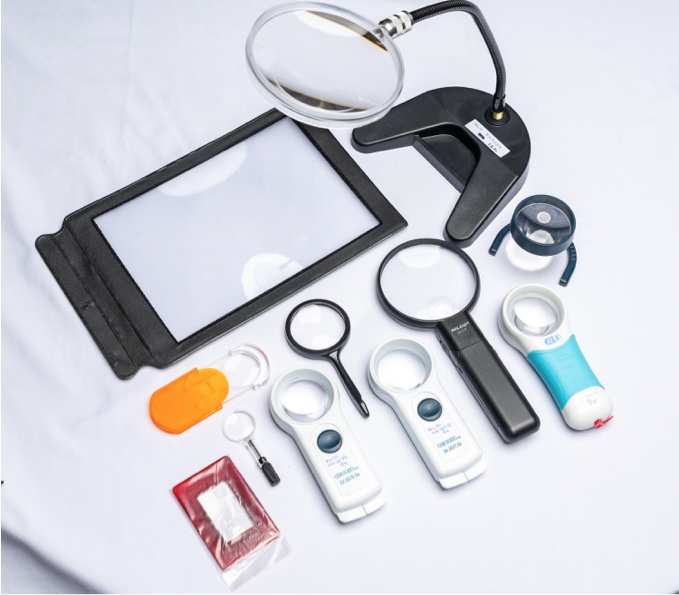 The MaxTV glasses are hands-free, head-mounted glasses that provide 2x magnification and can be adjusted so that each eye lens can be focused separately making the system adaptable to most individuals. The glasses will focus on objects
from distances of 3 m [10 feet] to infinity, and are perfect for watching TV, sporting events, movies, theatre, bird watching, or any other distance viewing activity in which a magnified image would be helpful.
The MaxTV glasses are hands-free, head-mounted glasses that provide 2x magnification and can be adjusted so that each eye lens can be focused separately making the system adaptable to most individuals. The glasses will focus on objects
from distances of 3 m [10 feet] to infinity, and are perfect for watching TV, sporting events, movies, theatre, bird watching, or any other distance viewing activity in which a magnified image would be helpful.
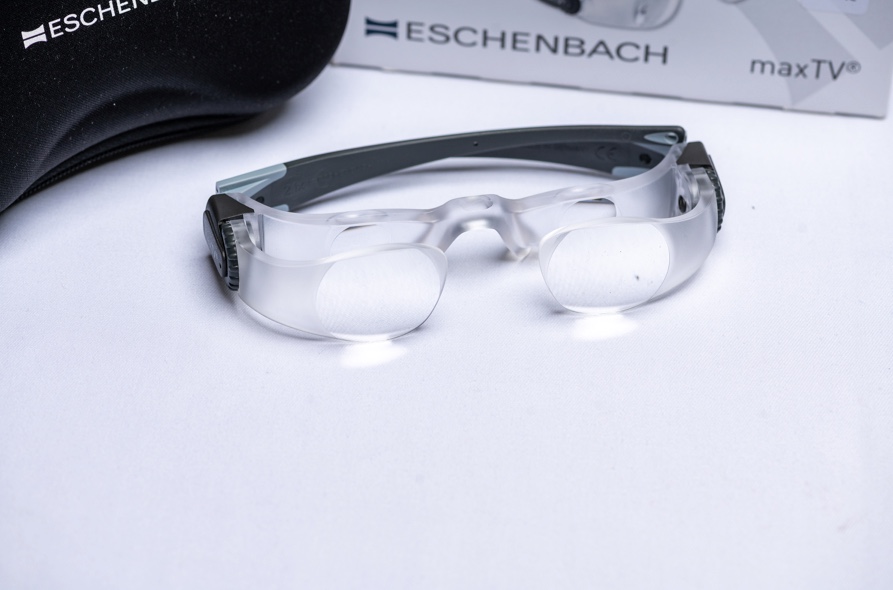
Other important factors are that if you wear spectacles, the prescription needs to be up to date so you’re using the best possible power / magnification for comfortable vision, the lighting in your home and workplace has to be optimum and a blue filter on the spectacle lenses is highly recommended. At Eyeris, you can be assured you will get all the appropriate advice and assistance. Feel free to contact us should you or anyone you know is suffering from AMD.
Eyeris The Optometrists
EYERIS always aims at exceeding expectations. When you become a patient of this practice, the health of your eyes will be their first concern, the second being to get the best possible visual performance for all your lifestyle needs.
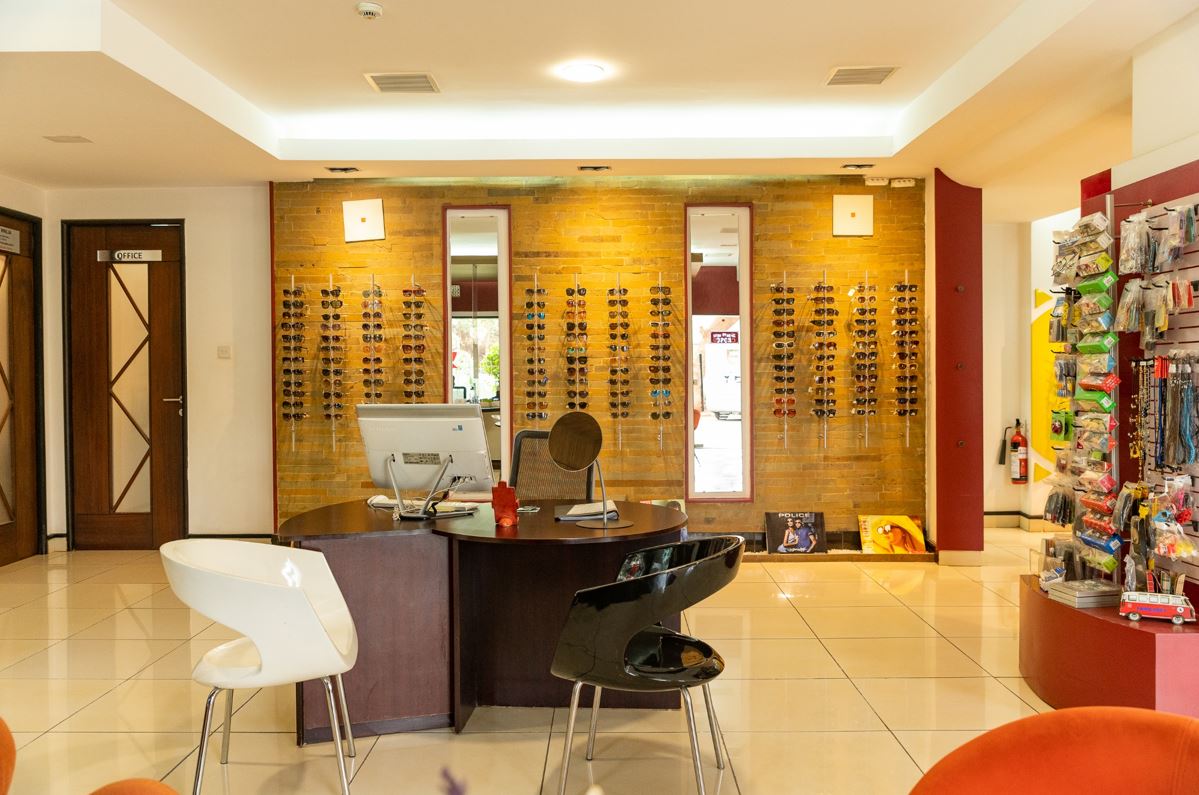
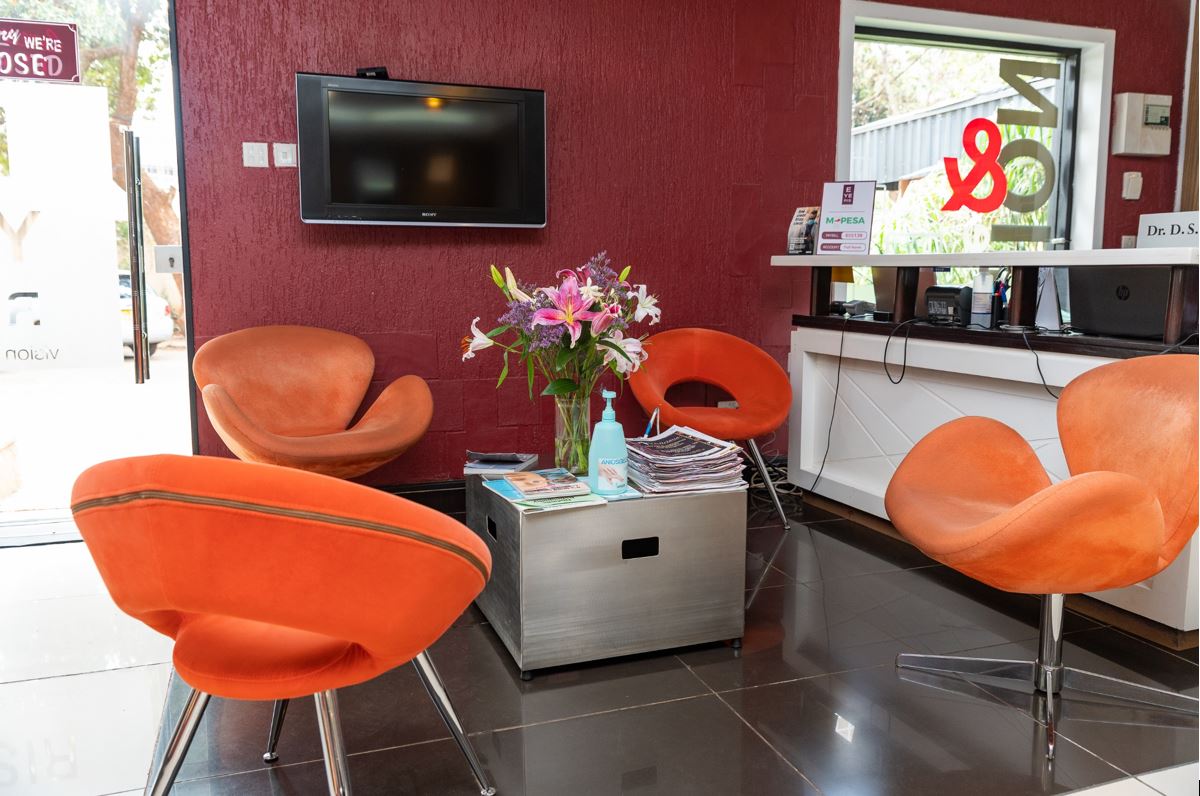
Meet The Team
With a team of optometrists and dispensing opticians who specialize in visual correction and thorough care of the eyes, Eyeris has the latest techniques and equipment used in examining and safeguarding one’s sight.
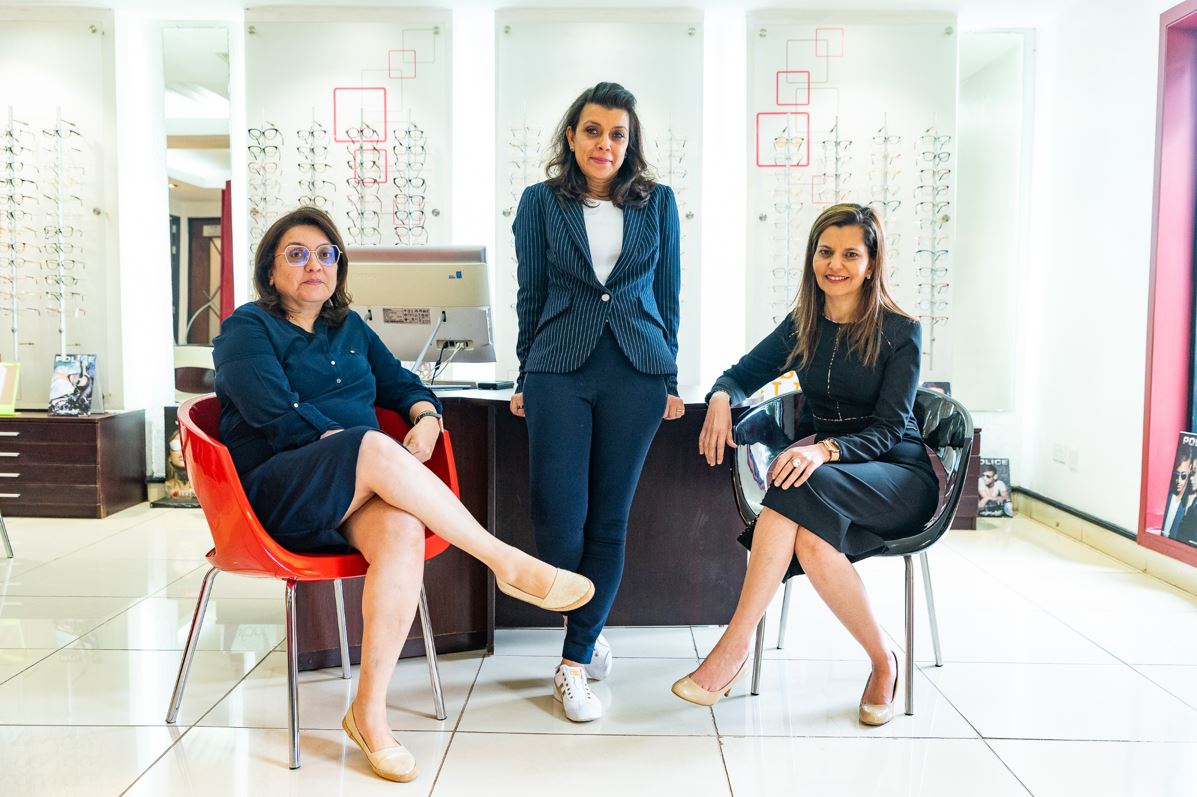
Vision and Style being their driving words, EYERIS is committed to setting a standard of excellence. The practice prides itself with the latest advances in eye health care practices having an array of the most up-to-date vision care technology.

Some of the services and products include routine eye examinations for persons of all ages; thorough retinal examination using advanced technology; dispensing of spectacles by professionals who will advise you on the choice of the frame with comfort and cosmesis in mind; designer and budget eyewear; contact lens fitting, including specialized lenses for astigmatism and keratoconus and low visual aids.
Visit Us At Harmony Centre, 43 General Mathenge Drive, Westlands
CLICK HERE for Directions

Contact us for consultation Mobile: +254 718 181 000 | +254 735 181 000 Email: info@eyeris.co.ke
Follow us on Social Media


Find Out More on Eyestrain As A Result Of Extended Use Of computers
]]>
